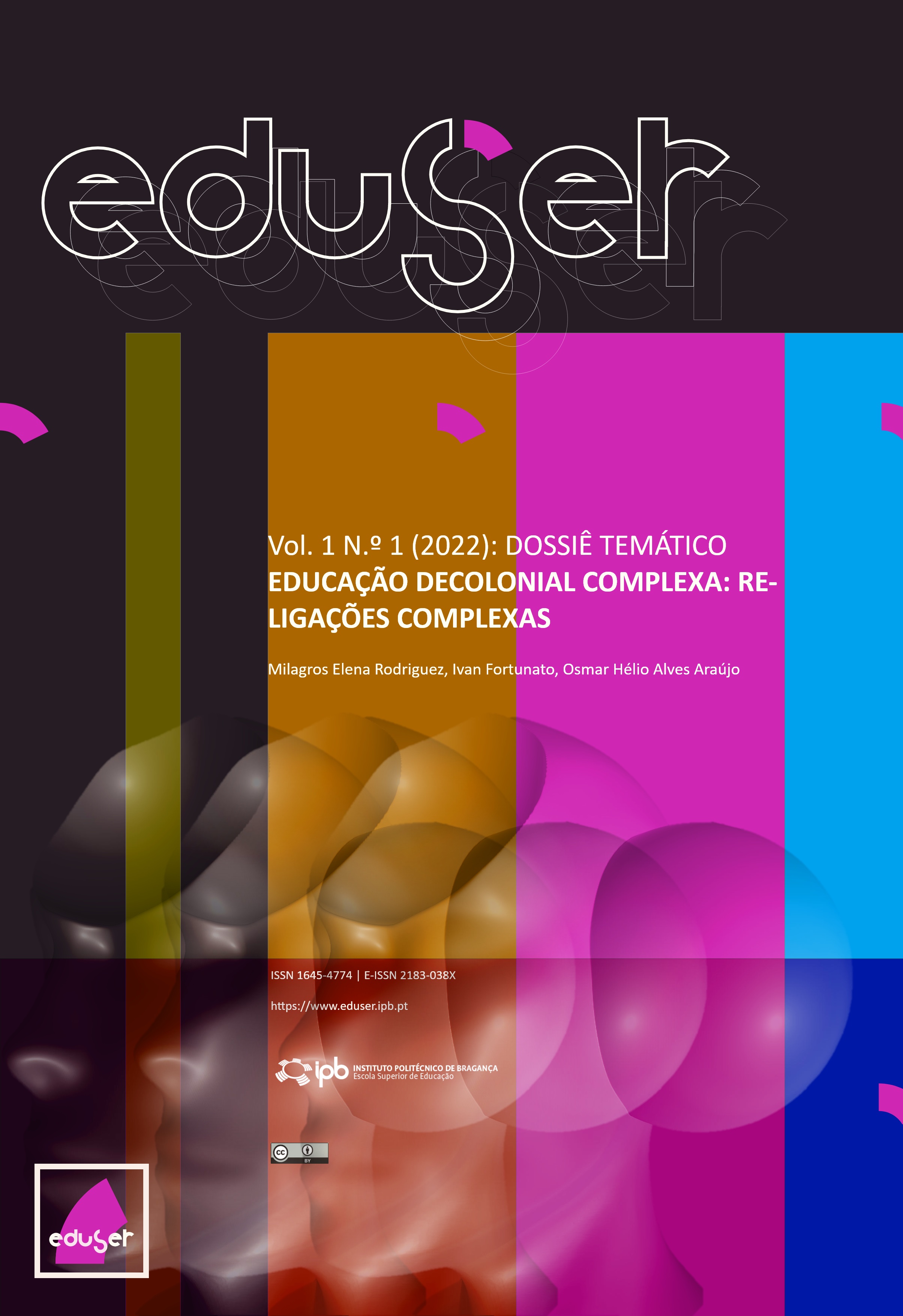Criticism of identity fundamentalisms: Comments to the “I Sovereign” from Roudinesco
Main Article Content
Abstract
Roudinesco, a very renowned French psychoanalyst, analyzes exacerbated ethnic or similar identities – hence the provocative expression “I Sovereign” – that demands an autonomy that is already incapable of coexisting with other autonomies. They stand as a fundamentalist reference, in the sense of not admitting contestation or even dialogue, preventing coexistence in society. The basic thesis suggests that, in order to live in society, it is necessary not to be fundamentalist, that is, to know how to live with diversity, a current fundamental theme of the most open democracies. France is in the backdrop of an Enlightenment European experience that adopted the secularity of the State, the “Lights” (Enlightenment) in scientific-cultural terms, democracy, and the republic. The book still aligns with some supremacist Eurocentric expectations, such as that some universalism of Human Rights is possible, while today it is argued that validity can only be relative, although not relativistic: historical and evolutionary dynamics are always valid, but in a relative way, not by default, but because it is its own way of asserting itself. While the Author's critical analysis of fundamentalist identity experiences is very vehement and well documented, there are still some colonialist remnants of a civilization that likes to be used as a model. Fundamentalist, or even terrorist, identity struggles are not acceptable, but one cannot forget that they react to European colonialism and the like, which also needs to be challenged.
Downloads
Article Details

This work is licensed under a Creative Commons Attribution 4.0 International License.
References
Althusser, L. (1980). Ideologia e aparelhos ideológicos do Estado. Editorial Presença.
Ariely, D. (2010). A taste of irrationality: Sample chapters from predictably irrational and upside of irrationality. Harper Collin.
Ariely, D. (2012). The honest truth about dishonesty: How we lie to everyone – Especially ourselves. Amazon.
Bourdieu, P.; Passeron, J. C. (1975). A Reprodução - Elementos para uma teoria do sistema educativo. Francisco Alves.
Censo escolar. (2021). Censo da Educação Básica 2020. Resumo Técnico. Inep/MEC, Brasília - https://download.inep.gov.br/publicacoes/institucionais/estatisticas_e_indicadores/resumo_tecnico_censo_escolar_2020.pdf
Charlot, B. (2020). Educação ou Barbárie – Uma escolha para a sociedade contemporânea. Cortez.
Demo, P.; Silva, R. A. (2021). Efeito desaprendizagem na escola básica. Amazon - https://drive.google.com/file/d/1jnLdc4Eie3zY0eDbmfMrz6Kac17kVqj0/view
Demo, P. (2020). Pedagogia do Amor - https://pedrodemo.blogspot.com/2020/08/ensaio-536-pedagogia-do-amor.html
Demo, P. (2021). Pesquisa qualitativa precisa de fundamentos epistemológicos. https://pedrodemo.blogspot.com/2022/01/ensaio-771-pesquisa-qualitativa-precisa.html
Dupas, G. (2006). O mito do progresso. Editora UNESP.
Elias, N. (2000). The civilizing process: Sociogenetic and psychogenetic investigations. Blackwell.
Foucault, M. (2000). A ordem do discurso. Loyola.
Habermas, J. (1989). Consciência moral e agir comunicativo. Tempo Brasileiro.
Haidt, J. (2012). The righteous mind: Why good people are divided by politics and religion. Pantheon.
Harari, Y. N. (2015). Sapiens: A brief history of humankind. Harper.
Harari, Y. N. (2017). Homo Deus – A brief history of tomorrow. Harper.
Harding, S. (1998). Is science multicultural? Postcolonialisms, feminisms, and epistemologies. Indiana University Press.
Harding, S. (2015). Objectivity and diversity: Another logic of scientific research. U. of Chicago Press.
Harris, J. R. (1998). The nurture assumption – Why children turn out the way they do. Simon & Schuster.
Hawking, S. W. (2006). The theory of everything: The origin and fate of the universe. Phoenix Books.
Krenak, A. (2020). A vida não é útil. Companhia das Letras.
Krenak, A. (2020a). O amanhã não está à venda. Companhia das Letras.
Kuhn, T. S. (1975). A estrutura das revoluções científicas. Ed. Perspectiva.
Kurzban, R. (2010). Why Everyone (Else) is a hypocrite: Evolution and the modular mind. Princeton University Press.
Lévi-strauss, C. (2008). Raça e História. Editorial Presença. https://edisciplinas.usp.br/pluginfile.php/2844023/mod_resource/content/1/L%C3%89VI-STRAUSS%2C%20Claude_Ra%C3%A7a%20e%20hist%C3%B3ria.pdf
Maturana, H. (2002). Emoções e linguagem na educação e na política. Ed. UFMG. Belo Horizonte – http://fvcb.com.br/site/wp-content/uploads/2016/07/Emo%C3%A7%C3%B5es-e-Linguagem-na-Educa%C3%A7%C3%A3o-e-na-Pol%C3%ADtica.pdf
Newson, L.; Richerson, P. (2021). A story of us: A new look at human evolution. Oxford U. Press.
Nurse, P. (2021). What is life? Five great ideas in biology. W.W. Norton & Company.
Piketty, T. (2020). Capital and ideology. Harvard U. Press.
Piketty, T. (2022). Time for socialism: Dispatches from a world on fire, 2016-2021. Yale U. Press.
Piketty, T. (2002a). A brief history of equality. Harvard U. Press.
Pinker, S. (2011). The better angels of our nature: Why violence has declined. Viking Adult.
Rosa, H. (2019). Resonance: A sociology of our relationship to the world. Polity.
Roudinesco, E. (2022). O Eu Soberano – Ensaio sobre as derivas identitárias. Zahar.
Santos, B. S. (2019). O fim do império cognitivo – A afirmação das epistemologias do sul. Autêntica.
Strevens, M. (2020). The knowledge machine: How irrationality created modern science. Liveright.
Unger, R. M.; Smolin, L. (2014). The singular universe and the reality of time: A proposal in natural philosophy. Cambridge U. Press.
